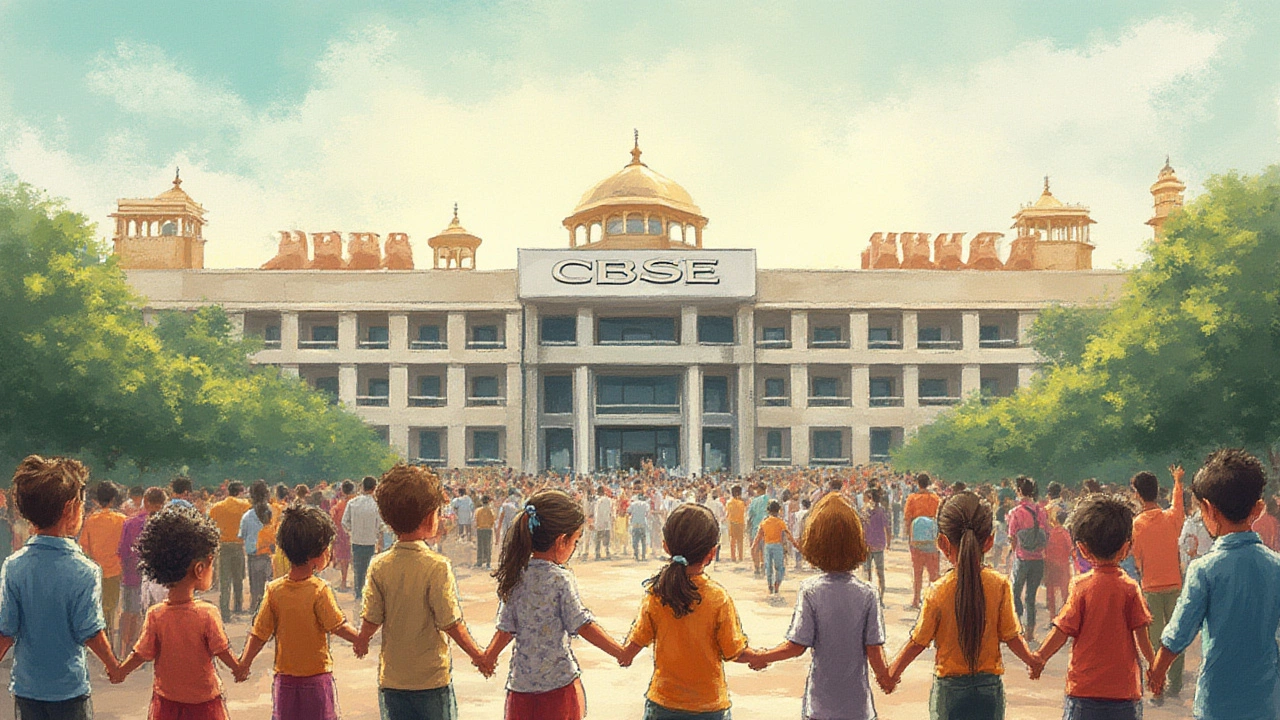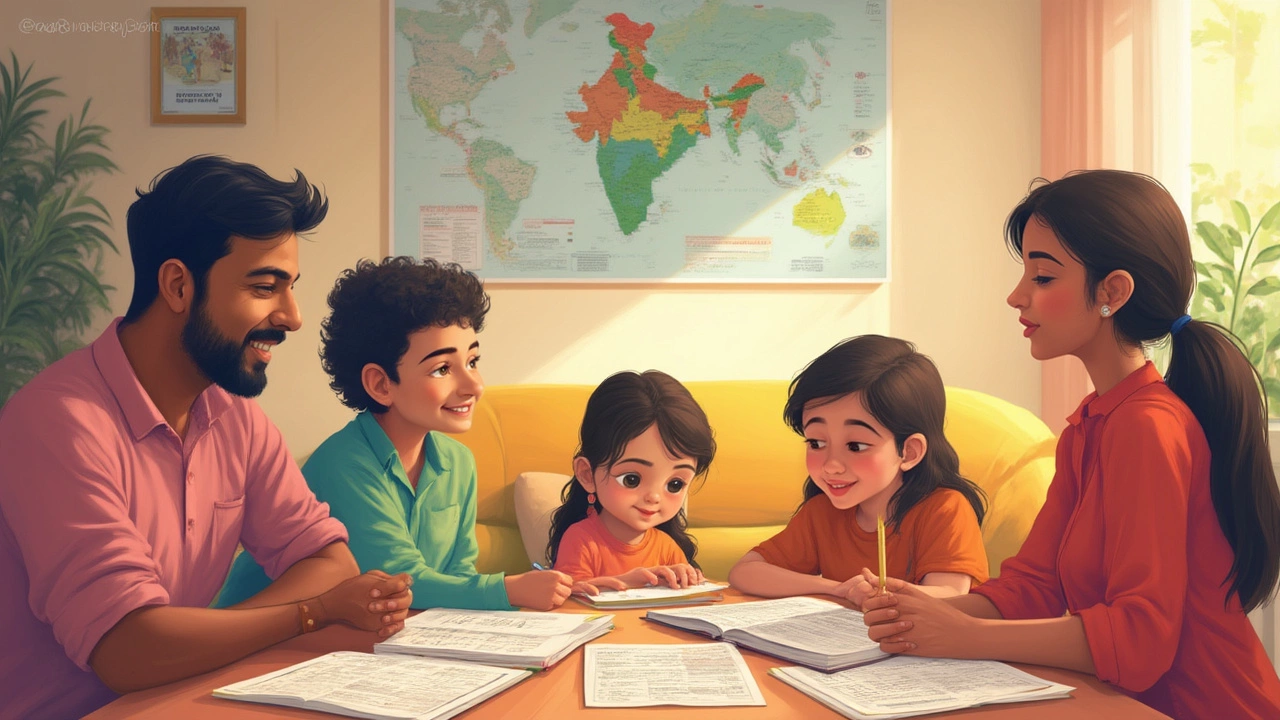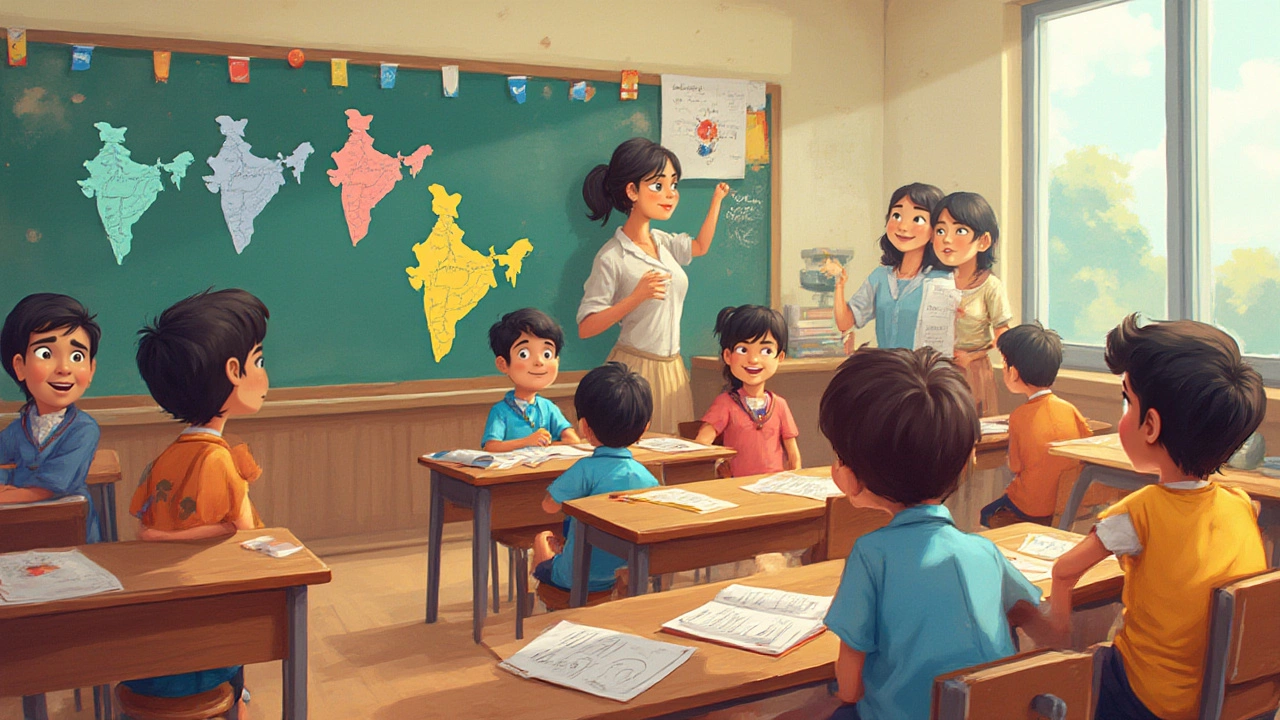Ever heard a parent in India say, “My kid studies in the CBSE board,” and wondered if it’s something exclusive to Delhi? You’re not alone. The idea that CBSE only belongs to Delhi pops up in chats from Manchester to Mumbai. Schools abroad, Indian expat parents, even some local teachers get this wrong. Let’s untangle the myths, zoom in on what CBSE really is, and see what makes it such a talked-about part of the Indian education scene.
Where Did CBSE Begin, and Why Do People Call It a Delhi Board?
CBSE stands for Central Board of Secondary Education. It sounds national, but its connection with Delhi is rooted in history. The board was first set up way back in 1929 by a resolution of the Government of India. The idea? To create a standard for schools affiliated with the Government of India, mostly for the children of central government employees who moved around the country—army, railway, and civil service families. The head office of CBSE is still in Delhi, which is maybe why people get confused. But that’s just the tip of the story.
CBSE’s job was never local. It has always aimed to be a national board—creating textbooks, conducting exams, and handling syllabuses for students all over India. These days, even international schools in the Middle East, Southeast Asia, and Africa follow the CBSE pattern.
Here’s something you’ll want to remember: the CBSE isn’t run by the Government of Delhi, but by the central government—specifically, the Ministry of Education (earlier called MHRD). This makes it totally different from the Delhi state board of education, which is a separate entity.
Want a fact? There are more than 28,000 schools affiliated to CBSE as of June 2024. Less than 5% of these schools are in Delhi. If you went to a CBSE school in Hyderabad, Kochi, Gurgaon, or Dubai, you studied the same syllabus as someone in New Delhi. That makes CBSE less of a Delhi board, more a pan-Indian (and even global) board.
CBSE’s National (and Global) Presence
If you dig through the list of CBSE schools, you’ll find them tucked into every nook and cranny of India. State capitals, villages, small towns—all over. Not a city thing, not a Delhi thing. It’s everywhere. So why do people outside Delhi even link CBSE to that city at all? Habit, maybe? Or the fact that the official address—that’s where the main office and key insiders sit—happens to be Delhi.
Here’s a number that’s eye-popping: CBSE board exams, both for Class 10 and Class 12, have over 3 million candidates (combined) every year. The pattern, information, question papers, and even teacher training modules are all centralized and then distributed country-wide. Some CBSE schools exist in more than 25 countries, across places like UAE, Saudi Arabia, Singapore, Nepal, even Russia and Japan.
Why this reach? The board built its system to serve India’s mobile workforce. That means a kid whose mum is a railway manager in Pune can move to Assam, and—thanks to CBSE—keep studying the same textbooks and curriculum in the new city without skipping a beat. For Army brats and diplomatic families, it's a massive relief.
CBSE isn’t small fry either. Every year, its schools produce lots of India’s highest scorers in national entrance exams for engineering (like JEE Main) and medicine (NEET). The board’s syllabus, especially for science and maths, is closely modeled on those entrance-exam patterns.
Check out this table on the spread of CBSE schools as of 2024:
| Region | Number of CBSE Schools |
|---|---|
| Delhi NCR | 1,250 |
| Rest of India | 25,000+ |
| Abroad | 250+ |
This data comes from the official CBSE website, updated in June 2024. See the massive difference? Delhi has a chunk of CBSE schools, but it’s swamped by the rest of India (and even international schools).

Comparing CBSE to State Boards and Other Indian Boards
If you grew up in India, you probably know about other school boards—like ICSE (CISCE) or the many State Boards. Each state has its own board: Maharashtra Board, West Bengal Board, Tamil Nadu Board, etc. These state boards handle local-government schools and have syllabuses and textbooks that differ a lot. They usually focus more on regional language and local content, and the exam patterns can vary dramatically. None of these is run from Delhi—they’re managed by local state governments. CBSE’s system is centrally controlled and, in practice, more uniform.
Let’s clear up a popular misconception. In Delhi, you do have some schools run by the Delhi Directorate of Education (also called Sarvodaya Vidyalayas, for example). These aren't the same as CBSE schools, though a few public schools there are affiliated to both boards, offering students a choice. But most run on their own curriculum. Meanwhile, CBSE’s standards are set by the central office, and the exam question papers and result moderation system is the same nationwide.
So, is there anything that really makes CBSE a "Delhi board"? Just the headquarters. The board chairperson and main offices are in Delhi since that's where the nation's power centre is. But when it comes to what happens in the classrooms, on answer sheets, or in textbooks, it’s absolutely, deliberately, national.
And if you’re curious about how it compares to ICSE, here’s a quick take: ICSE (CISCE board) has a reputation for being heavier on English and literature, and a bit less math-intensive. CBSE is less about essays, more about application-based questions in science and maths. The two boards aren’t ranked “better” or “worse”—they’re just different approaches.
CBSE’s Strengths: Why Parents Pick It
If you ask families why they pick CBSE over State Boards, you’ll get a bunch of straight-up reasons:
- Uniform syllabus: So if you move, no hiccups for your child.
- Science and maths focus: The textbooks line up with top competitive exams, like CBSE is almost a golden ticket for JEE and NEET prep.
- Plenty of resources: Sample papers, support materials, and online guidance flood the internet every exam season. If you search "CBSE Class 10 sample papers," you’ll get thousands of resources, most curated by teachers, coaching centres, and even student-run platforms.
- English and Hindi: Teaching materials usually come in both—in fact, in some states, even more language options get thrown in.
- Wide reach: Kids abroad, expat Indian families, and the children of central government employees—all covered.
Here’s a cool thing: CBSE started an annual "board exam feedback" portal in 2023. Students and teachers can anonymously review question difficulty, clarity, and syllabus coverage. This helps in catching problems and improving fairness each year. Not perfect, but much more transparent than many other systems.
And when it comes to teacher training or textbook updates, CBSE moves faster than most state boards. Workshops, web-based training, updates for new exam formats—it all gets rolled out in real time or with quick turnaround. When NEP 2020 (the New Education Policy) landed, CBSE was among the first to craft new sample curriculum pilot projects and textbooks.
All these reasons keep the board in huge demand, not just in Delhi, but in towns from Guwahati to Goa to far-flung Abu Dhabi.

The Bottom Line: Myths, Reality, and What the Future Holds
So next time you hear anyone calling CBSE a Delhi board, you’ll know—it’s a label that doesn’t hold up. Sure, the CBSE HQ is in Delhi, but that’s just where the paperwork gets stamped. In lived reality, CBSE is India’s great leveller in school education, binding together a massive and diverse country under one academic banner. If you’re in Amritsar, Ahmedabad, Andhra, or abroad, “CBSE” still means you’re following the same rules.
There are still gaps and debates. State boards sometimes say kids need less rote learning. Critics say one curriculum for such a big and diverse country can’t fit every culture and need. But when it comes to mobility, standardized tests, and a level playing field for millions, CBSE is what’s on the ground right now.
And as digital learning grows, CBSE is shifting online fast—offering lectures, OMR assessments, and remote teacher workshops. In Class 10 and 12, digital mark sheets now roll out through DigiLocker, India’s official e-document storage, in minutes, not months.
Long story short: CBSE might have Delhi in the address, but it’s much bigger than that. It’s a nationwide guarantee for students who want consistency from Kashmir down to Kanyakumari. That’s why “Is CBSE a Delhi board?” still comes up in 2025 … and why it needs a clear answer every time.
